Managed IT Services
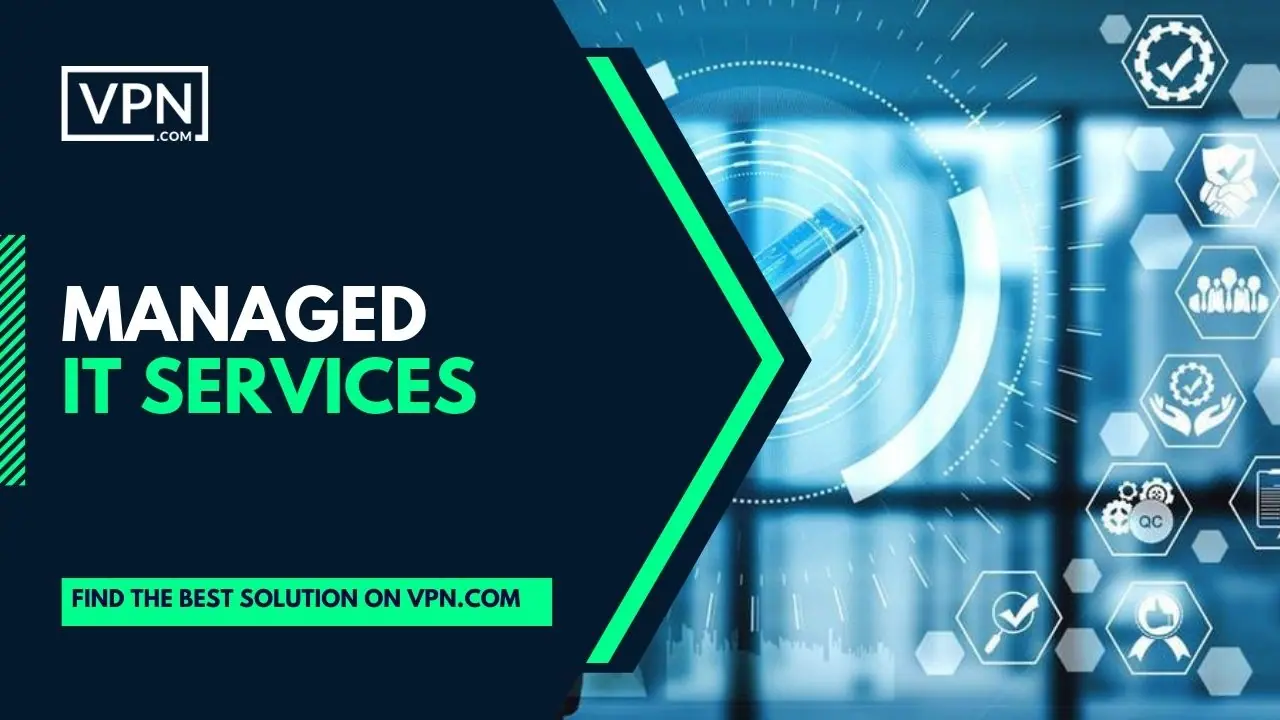
Businesses can get a full-service solution for all of their technological requirements from managed IT services. With the help of this service, businesses may feel at ease while utilizing technology to streamline their processes.
Managed IT services, which put a strong emphasis on remote monitoring and management, making sure that any issues are found and fixed before they have a serious impact. Businesses can free up key resources by outsourcing IT services and concentrating on their core strengths, which is crucial for success in the cutthroat market.
In addition, managed IT services assist in lowering the expenses of hiring, educating, and keeping IT staff as well as limiting the hazards of data security and regulatory compliance. In a word, managed IT services give businesses the knowledge required to remain adaptable, economical, and current in a technology environment that is continually expanding.

Signup at our #1 host
- Reduce Costs
- Shorten time to market
- Increase efficiency
- Improve agility & consistency
What Are Managed IT Services?
The term “managed IT services” describes the practice of contracting out a company’s information technology requirements to an outside vendor. Managed IT service companies tailor their offerings to meet the specific requirements of each client. Network administration, help desk assistance, security monitoring, data backup and recovery, and software management are all examples of managed IT services.
When compared to more conventional IT services, these offer a more all-encompassing and preventative method of handling a company’s technological infrastructure. Managed IT services focus on avoiding problems before they happen rather than repairing them after the fact. Working with a managed IT service provider allows businesses to make use of their knowledge, tools, and proactive support to boost the efficiency and effectiveness of their IT systems.
What Are The Types Of Managed IT Services?
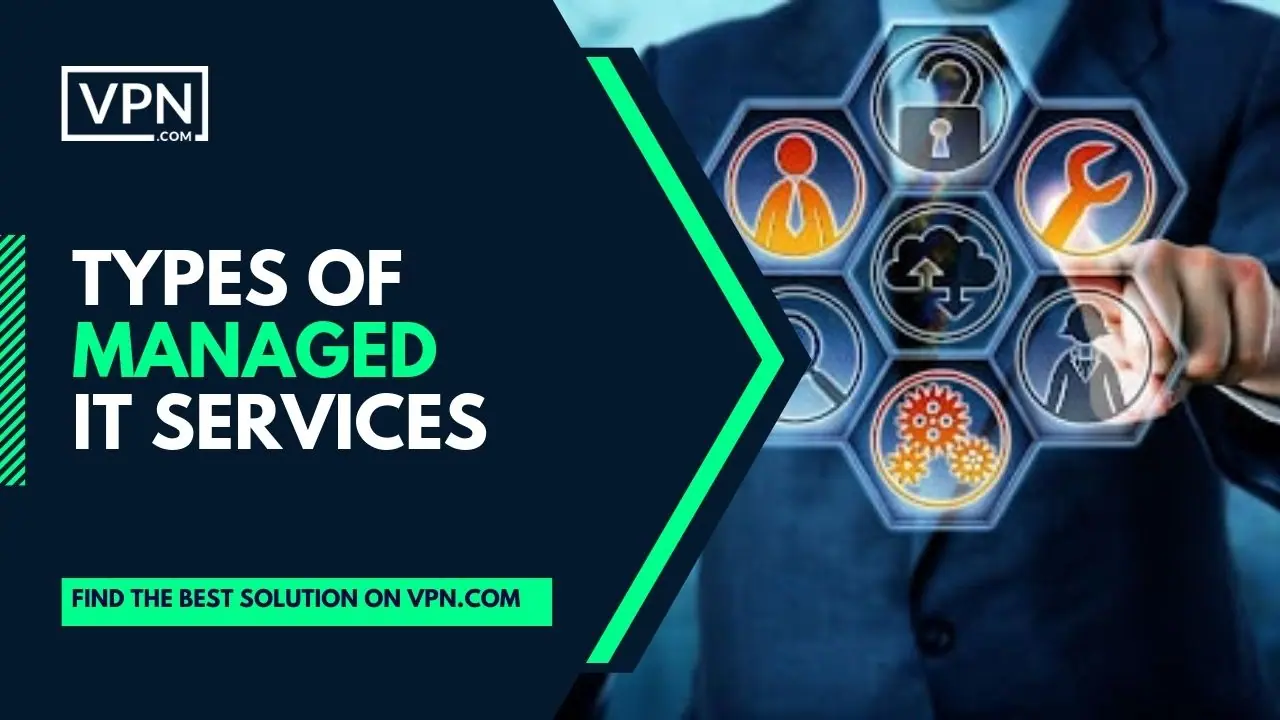
The types of Managed IT Services are Network Management, Cloud Services, Data Backup Disaster Recovery, Security Services, Help Desk Technical Support and Managed Print Services. Although managing a company’s network might be challenging, it is manageable with the correct support services in place.
Businesses frequently use cloud services to store their data because they offer simple accessibility and scalability. The crucial information of a company must be preserved and kept secure, which calls for data backup and disaster recovery services.
Security services can give business owners peace of mind by defending against potential online dangers. Employees receive thorough assistance from help desk and technical support services, ensuring they have all they need to continue working productively.
Managed print services help optimize a company’s printing capabilities, cutting expenses and boosting productivity. There are several methods available for maintaining a company’s network to make sure it functions properly and safely.
Network Management
Services for network administration are essential in today’s corporate context. They provide a full range of network monitoring, security, and stability solutions. These services include system upkeep, troubleshooting, and updates, among others.
Businesses can choose from a range of solutions, each of which is tailored to meet certain demands and specifications. Increased productivity, less network downtime, and lower system failure costs are all benefits of using network management services.
Businesses can focus on their core skills while relying on a team of professionals to handle their network concerns by outsourcing network management services, enabling efficient and seamless operations.
Cloud Services
Cloud services have revolutionized the way we store, manage, and access data. From popular file-sharing platforms like DropBox and Google Drive to on-demand streaming services like Netflix and Disney, cloud services have become an essential part of our daily lives. With an array of benefits such as cost savings, scalability, and enhanced flexibility, it’s no wonder why more and more businesses are turning towards cloud services.
Plus, the ability to access your data from any device and location is a gamechanger for remote working and collaboration. With the rise of cloud services, we can expect to see even more innovative and game-changing services in the future.
Data Backup And Disaster Recovery
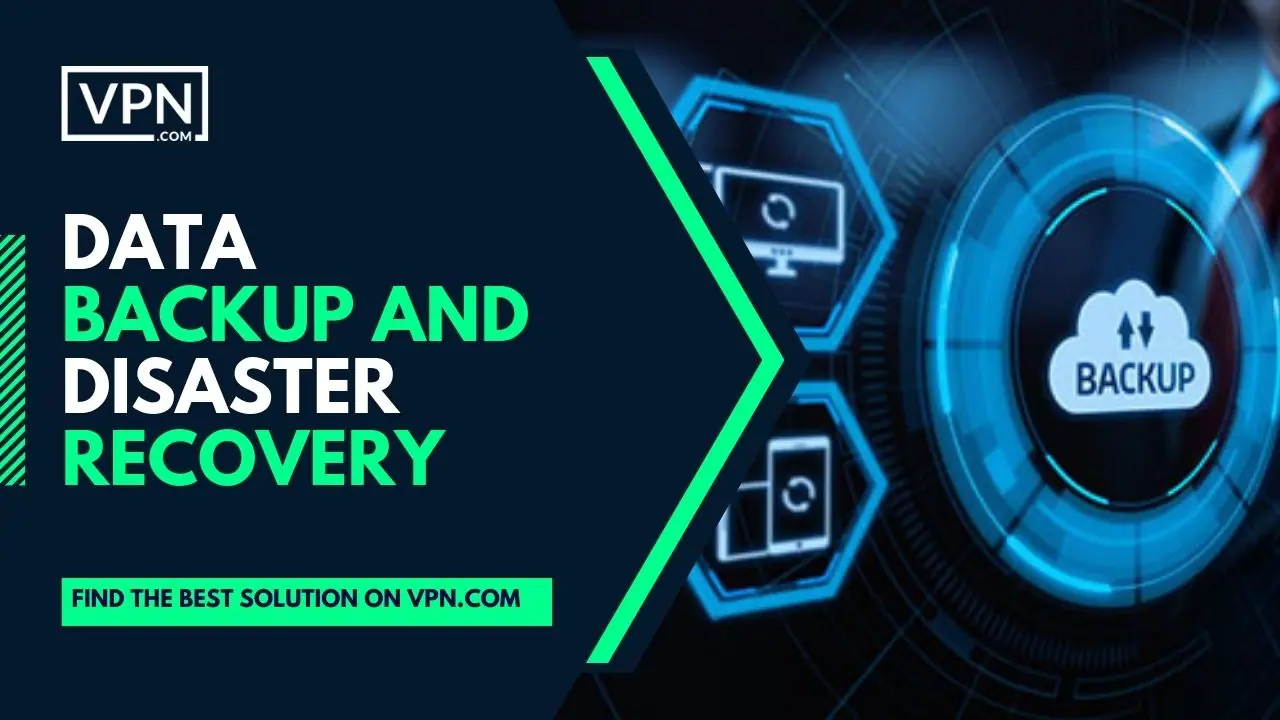

Signup at our #1 host
- Reduce Costs
- Shorten time to market
- Increase efficiency
- Improve agility & consistency
Data is the most precious asset for any company in the modern digital age. So, it is apparent that catastrophe recovery and data backup services are required. These services not only safeguard your data in case of calamity, but also keep your infrastructure operational.
Cloud backup, physical backup, remote backup, and automated disaster recovery are all examples of data backup and disaster recovery services. These services are meant to give you a safe and secure place to store your information.
Data backup and disaster recovery services have several positive outcomes, including higher levels of data security, less downtime, and happier customers. Your data will be secure, and your operations will continue without interruption thanks to these services, no matter what the situation may be.
Security Services
When it comes to safeguarding your property, assets, and loved ones, it is essential to have a thorough security plan. A variety of security services are available to meet your specific requirements, including surveillance cameras, access control systems, armed guards, and canine patrols.
These services not only deter illicit activity, but also give you, your family, and your employees peace of mind and a sense of security. By partnering with a reputable security company, you can ensure that a team of trained professionals is available to respond to any hazard or emergency. Whether you require security services for your home, business, or event, investing in this essential infrastructure is a prudent choice that can yield innumerable benefits.
Help Desk And Technical Support
When it comes to technology, encountering issues is not uncommon. As a result, help desk and technical support services are useful. These services provide assistance to users whose technological devices or applications are malfunctioning.
Help desk and technical support services include troubleshooting, remote support, and repair services, among others. The benefits of these services are extensive; they save the consumer time, money, and frustration. Help desk and technical support services ensure that technology operates effortlessly and efficiently, allowing individuals and businesses to concentrate on what is most important.
Managed Print Services
Managed print services (MPS) are a cutting-edge method of controlling document production in a corporate environment. The range of services offered by MPS providers includes everything from routine maintenance of a company’s printer fleet to long-term planning for future printing needs. Businesses can access a variety of printing options through MPS that can boost productivity and cut expenses.
These solutions could come with advanced security capabilities as well as fleet management and document workflow efficiency. Businesses may enhance productivity, decrease waste and downtime, and optimize their printing procedures by using managed print services. For companies trying to gain a competitive edge, outsourcing print management to an MPS provider can be a game-changer.
Difference Between Managed IT Services And Cloud Services
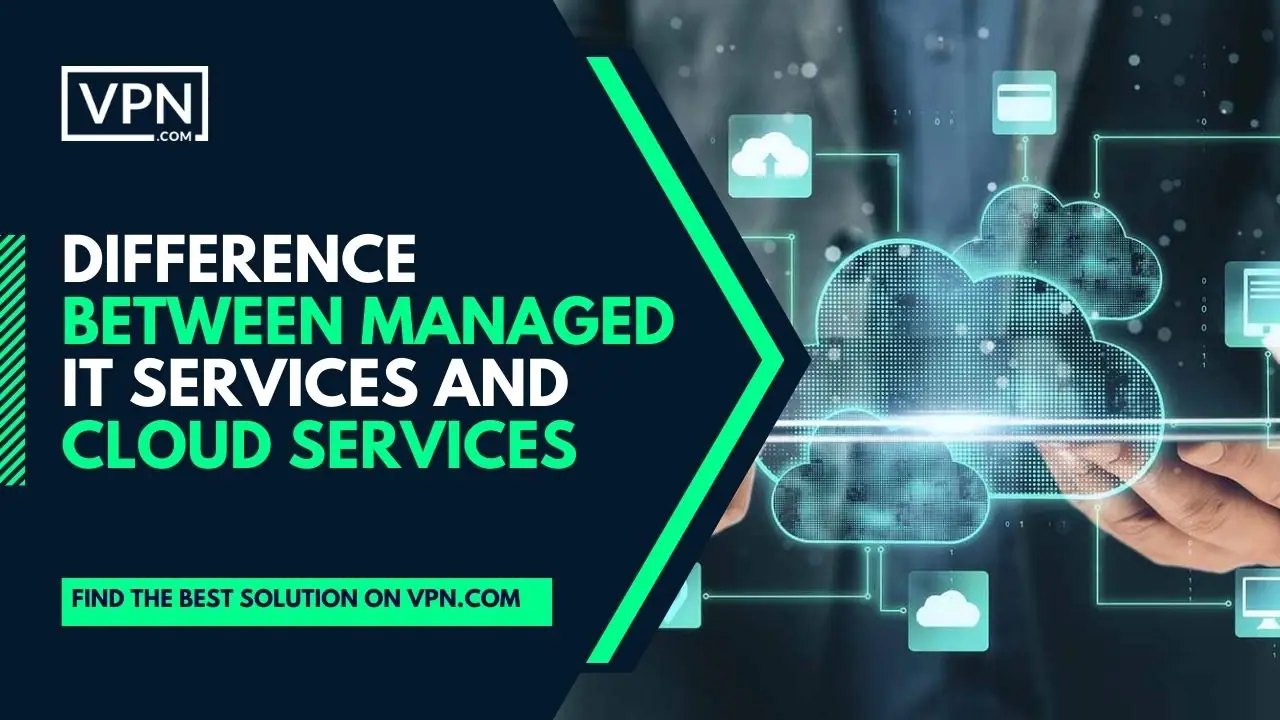
The provision of technological resources via the internet is referred to as cloud services. Typically, these services include infrastructure, software, and platform resources distributed on-demand to customers. In contrast to managed IT services, cloud services offer customers greater flexibility and scalability, as they can rapidly provision and deprovision resources as required.
In addition, cloud services typically necessitate a smaller initial investment and provide more predictable, pay-as-you-go pricing models. However, cloud services are not without their drawbacks, including potential security hazards and diminished control over the underlying infrastructure.
Managed IT services, on the other hand, offer greater control and customization options, but may necessitate larger investments and ongoing management. In the end, the optimal strategy will depend on the particular requirements and resources of each organization.

Signup at our #1 host
- Reduce Costs
- Shorten time to market
- Increase efficiency
- Improve agility & consistency
What Are The Benefits Of Managed IT Services?
The benefits of managed IT services are Cost Savings, Access To Expertise, Scalability, Improved Security, Reduced Downtime and Focus On Core Business Activities. Cost reductions are usually a top goal when it comes to managing a corporation. Fortunately, you can save money in a variety of ways by outsourcing some tasks. In addition to providing access to skills that you might not otherwise have, outsourcing also enables scalability without necessitating the hiring of more staff members.
Additionally, outsourcing frequently offers better security measures to safeguard your clients, sensitive data, and organization. Also, outsourcing can help you minimize downtime and resume operations as soon as feasible if there are any disruptions.
You may concentrate on your core business operations and maintain the health of your company by having outsourcing handle these essential tasks. Overall, outsourcing can be a fantastic option for companies trying to reduce expenses and increase productivity.
Cost Savings
Managed IT services provide a number of advantages that can result in cost savings for enterprises. Businesses can gain access to cloud data storage and backups for critical information, advanced network security measures, and easier management of all their equipment by partnering with managed IT service providers.
This eliminates the requirement for distinct physical equipment purchases and maintenance expenditures. In contrast to traditional IT services such as purchasing, installing, configuring, and troubleshooting hardware components on your own, managed IT services give expertise supported by a 24/7 support staff, ensuring that organizations are always ready for any issue that may endanger their operations.
Investing in managed IT services can help you streamline activities and reduce operating expenses while also offering the tools you need to keep your firm functioning at optimum efficiency.
Access To Expertise
Managed IT services provide businesses with a vast array of specialized knowledge that enables them to remain ahead of technological developments while maintaining efficient operations. These services provide a team of highly trained experts in a variety of fields, including security, network infrastructure, and software development, among others.
Accessing this expertise without hiring full-time employees not only saves money on salaries and benefits, but also gives the business the ability to scale as it expands. In addition, having a team of experts available 24 hours a day, seven days a week ensures that any technological issues are resolved promptly and effectively. With managed IT services, businesses can concentrate on their primary operations while leaving technology management to professionals.
Scalability
Scalability is a fundamental component of any business growth strategy, irrespective of size or industry. Essentially, scalability alludes to a company’s ability to grow as needed without sacrificing performance or efficiency. For this reason, many businesses rely on managed IT services to attain their scalability objectives.
This is because managed IT services are intended to provide flexible and adaptable solutions that can be tailored to the unique requirements and challenges of each business.
With the right managed IT services partner, businesses can leverage scalable infrastructure, improved connectivity, robust security measures, and automated processes to expedite their operations and boost their productivity. By doing so, businesses can reduce their operational expenses, increase their revenue, and remain competitive.
Improved Security
Businesses need to update their security protocols to keep confidential data safe from hackers as technology develops. Security measures provided by managed IT services can greatly enhance an organization’s safety.
Managed IT services, which include everything from firewalls and antivirus software to password management and regular software updates, may spot and stop assaults before they do any damage.
The faith and trust of customers and clients are bolstered when a company’s security measures are strengthened. The future of any company can be protected by investing in managed IT services for high-level security measures.
Reduced Downtime
Less downtime is a major benefit of managed IT services for businesses. Employees’ inability to provide their all due to technical difficulties results in wasted time and money. Managed IT services, however, can assist pinpoint and fix IT problems promptly.
They’ll be able to update and maintain it to fix any foreseeable issues. This means there will be less downtime for enterprises, allowing them to run more efficiently. There is the possibility of cost savings and a rise in satisfied and loyal customers as a result. When downtime is minimized, businesses have more time and energy to devote to other essential tasks.
Focus On Core Business Activities
By minimizing downtime, managed IT services can be very advantageous to enterprises. Employees are unable to operate at full capacity when technical problems arise, which reduces productivity and revenue. But, these problems can be promptly located and fixed with the use of managed IT services.
They can carry out the necessary updates and upkeep to stop difficulties from occurring again. As a result, companies can function more smoothly and effectively with less downtime. Increased client satisfaction and loyalty as well as significant cost savings can result from this. Less downtime means having more time and resources to concentrate on other crucial elements of managing a successful company.

Signup at our #1 host
- Reduce Costs
- Shorten time to market
- Increase efficiency
- Improve agility & consistency
What Are The Challenges Of Managed IT Services?
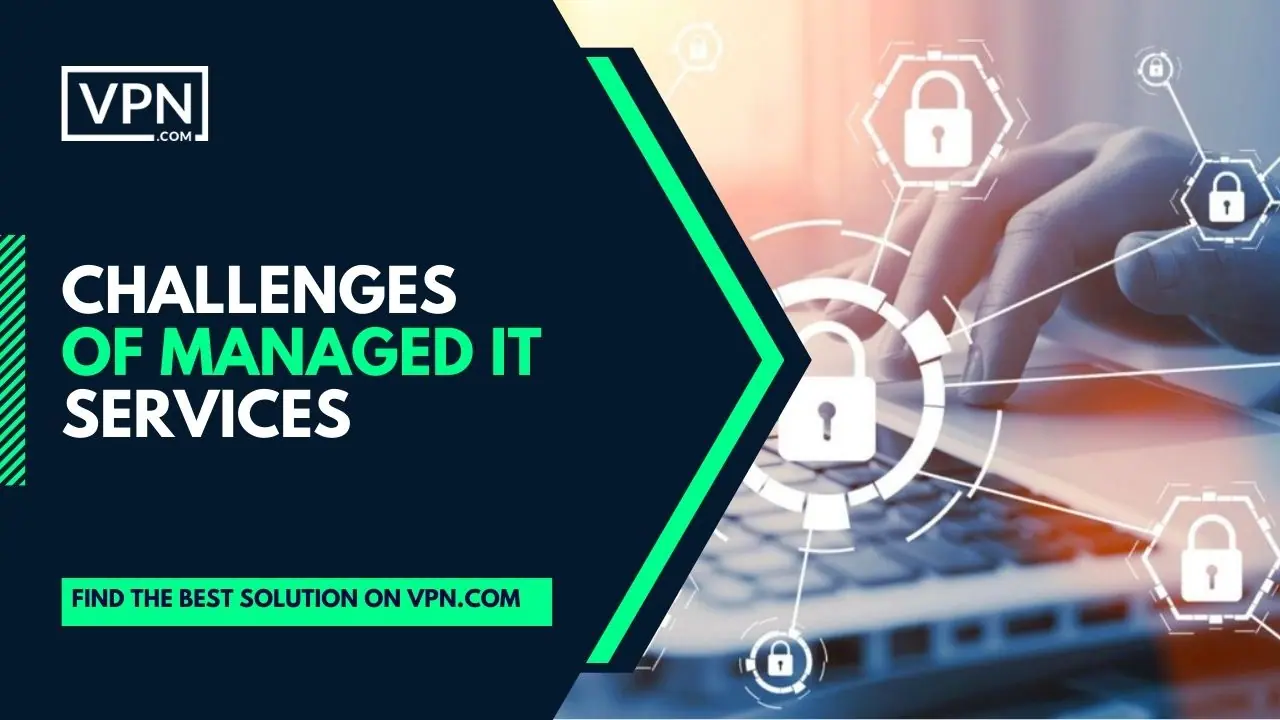
The challenges of managed IT services are Client Communication, Technical Expertise, Security Risks, Service Level Agreements, Staffing and Competition. The ability to communicate with customers is crucial for any successful organization. It’s essential to be able to interact with clients effectively, pay attention to their needs and problems, and give them information that is clear and succinct. Having the technical knowledge to support your communication skills is equally crucial.
Customers anticipate the expertise, modernization, and problem-solving skills of their service suppliers. Our competence also includes recognizing and reducing security risks in the continuously changing technological environment of today. In order to fulfill client expectations and hasten problem resolution, service level agreements are also essential.
Naturally, none of this is possible without the proper staffing. It is crucial to invest in qualified people. Finally, competition is a given. Every company needs to remain competitive by providing unique and dependable solutions. Businesses may ensure their success in a continuously changing environment by giving priority to client communication, technical competence, security, service agreements, staffing, and competitiveness.
Client Communication
Our daily lives depend on communication in many ways. Even the most straightforward manner of communication, though, can be problematic. For instance, misconceptions and miscommunications might happen and cause communication to break down. Language obstacles, disparities in cultural perspectives, or even different communication styles can all contribute to these breakdowns.
For instance, some people might be more blunt and straightforward while others might favor a more deceptive and covert approach. Individuals must develop persuasive communication tactics that connect with their audience if they want to overcome these obstacles. Effective communication techniques include active listening, paraphrasing, and maintaining eye contact.
People can also make sure that their message is presented in the appropriate context, tone, and mood by paying attention to their voice. Individuals may foster a more collaborative, honest, and open discourse that improves communication and understanding between parties by putting the correct communication methods in place.
Technical Expertise
Even the most seasoned professionals may face a variety of difficulties when navigating the constantly changing world of technology. Gaps in technical expertise might be particularly difficult, but it’s crucial to realize that they can be filled. Typical problems can include not being familiar with new software, having trouble navigating complicated systems, or just keeping up with the most recent developments in your industry.
To fill in these holes and stay on top of the game, you can employ a number of different techniques. The secret is to approach the problem proactively and with an eagerness to learn, whether that means investing in continued training or looking for guidance from seasoned professionals. Even the most difficult technological challenges can be addressed with enough time, persistence, and a willingness to change.
Security Risks
There are unquestionably security hazards that must be considered when it comes to managed IT services. The seizure of sensitive data or information is one of the most frequent security breaches.
In addition, hackers may seek to exploit vulnerabilities in managed IT systems, thereby endangering essential business operations. To mitigate these risks, it is crucial to implement strategies such as frequent system updates, robust passwords, and continuous monitoring of suspicious activity.
Having a plan of action in place and proactively addressing potential hazards can aid in protecting your business and valuable data. By maintaining vigilance and working closely with your IT service provider, you can significantly reduce the likelihood of a security breach.
Service Level Agreements
Managed IT services come with their own set of unique security considerations. Theft of data or other types of sensitive information is a regular security violation. Furthermore, malicious actors may attempt to penetrate managed IT systems via exploiting security holes.
Regular system updates, secure passwords, and constant monitoring for unusual behavior are critical measures to take to reduce these dangers. Safeguarding your company and your sensitive data requires having a plan of action and being proactive in addressing potential hazards. The chance of a security breach can be drastically reduced via tight collaboration with your IT service provider and constant vigilance.
Staffing
Any company will tell you that resolving staffing issues is no easy feat. Problems with staffing can affect day-to-day operations and, ultimately, the bottom line if employees aren’t available when needed because of things like a sudden uptick in workload or unexpected absences.
Hiring freezes, high turnover rates, finding individuals with the right qualifications, and low employee engagement are all examples of staffing issues that may develop. These difficulties can be conquered, though, if the proper measures are taken.
Many approaches can be taken to overcome these difficulties, including improved methods of recruiting and retention, increased funding for employee training and development, and more attractive financial and benefits packages. Organizations may achieve their goals and grow with the help of great personnel if they take the initiative and put some effort into creating a positive work environment.
Competition
There is a lot of competition in the managed IT services sector, making it difficult to distinguish apart. Businesses in this sector confront a significant competitive threat from the constant development of technology. Given the dynamic nature of the IT industry, managed IT services providers must continually adapt to survive.
Furthermore, it is essential for companies in this sector to set themselves apart from the competition. Companies that want to stand out will emphasize their distinctive value propositions, which highlight their superior knowledge, dependability, and product or service quality. Success in this cutthroat industry also depends on taking a nimble, customer-first attitude. Successfully navigating the hurdles of competition in the managed IT services sector is possible if firms prioritize these tactics.
How To Choose A Managed IT Services Provider?

Choosing the right provider can be the difference between a seamless IT infrastructure and a chaotic mess. When selecting a provider, there are a few important factors to consider. Firstly, take a look at their experience and expertise in your field to ensure they have the necessary knowledge to provide tailored solutions specific to your business needs. Asking the right questions is also critical.
You want to be sure they have a solid understanding of your business model and your unique challenges. Additionally, take into account their response time, pricing structure, and level of customer support. To help you in your search, there are numerous examples of managed IT services providers, each with their own strengths and specialties. Ultimately, the provider you choose should inspire confidence in their abilities and their understanding of your business.

Signup at our #1 host
- Reduce Costs
- Shorten time to market
- Increase efficiency
- Improve agility & consistency
Conclusion
Having a solid IT foundation is essential in today’s fast-paced, tech-driven company environment. Proactive maintenance, 24/7 monitoring and assistance, and less downtime are just a few of the many advantages that managed IT services can offer to businesses. Businesses can save money and boost efficiency by teaming up with a managed IT services provider.
With managed IT services, businesses can concentrate on what they do best while professionals handle the nitty-gritty of their IT infrastructure. Collaborating with a managed IT services provider is a smart move for any organization that wants to stay competitive and improve its operations. Don’t put off taking advantage of managed IT services until it’s too late; do it right now.
Customer Reviews for Performive.com

Gary Simat Great Leader, Performive Great Company
October, 17 2022

Best Hosting Provider
March, 25 2021

Excellent performance from an elite company.
March, 8 2021




